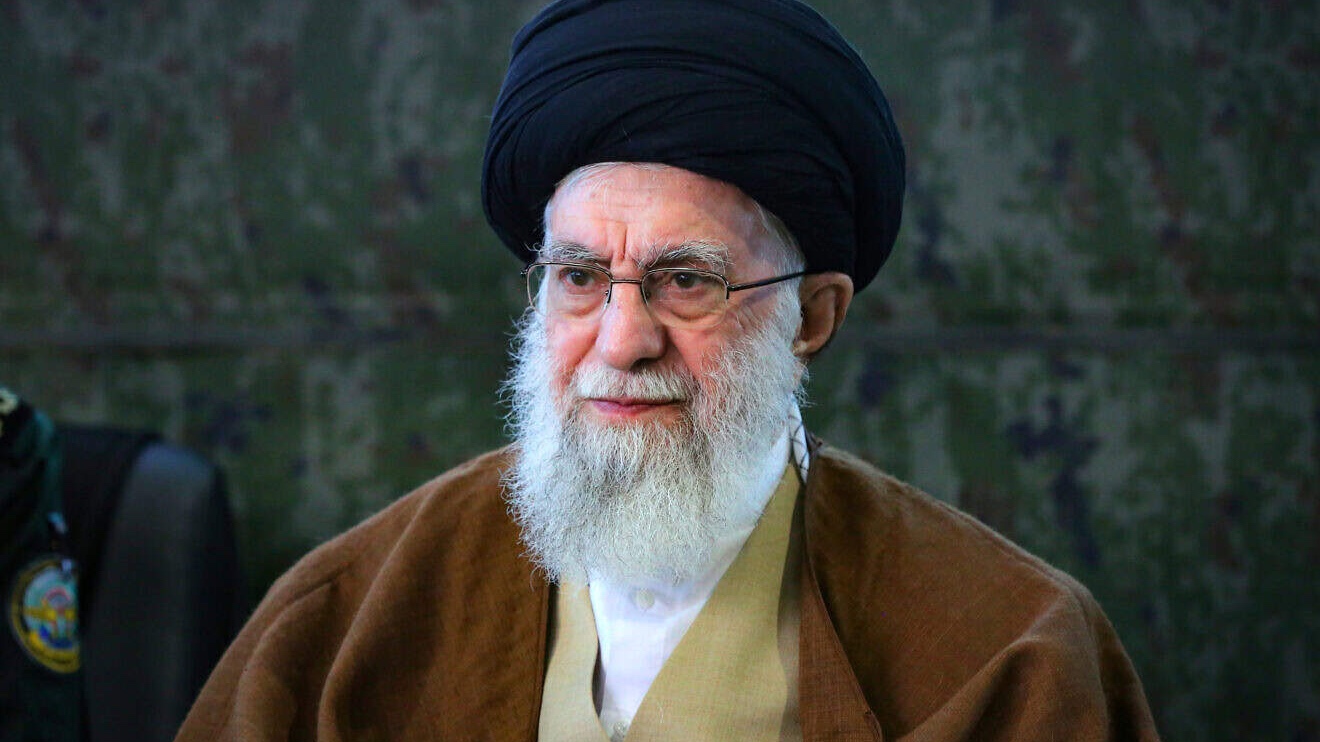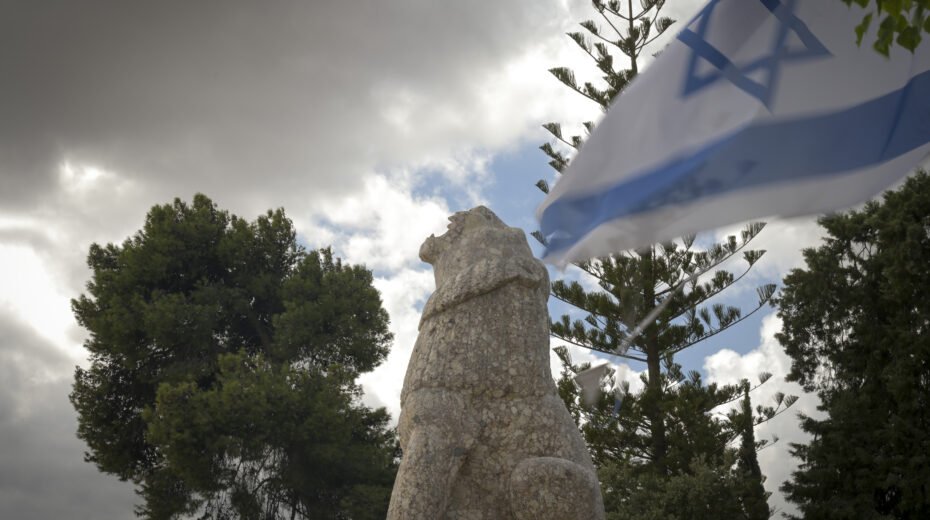Throughout history God’s covenant purposes move forward as one generation succeeds another. His purposes are to be discerned behind the day-to-day news that is prominent in our world. What He is doing would not normally make the headlines. For example, while the entire the world of sin that was about to be judged by God consumed a generation, one man, Noah, built a boat at the command of God. Likewise, Abraham’s journey from Ur to Canaan involved one family, obscure from most of the then world. And so on through all the years of human activity.
The Lord Jesus Himself had little to do with the great kingdoms of the world of His day, ministering to the poor for a few years before ultimately becoming our Sacrifice, something that was barely understood at the time even by His own disciples.
One needs prophetic insight to discern what God is doing in any age – what His priorities are as the next stage of covenant history unfolds. That is not to say that God is only doing one thing but that, through the present world system, God’s overall covenant purposes are moving forward to the next main objective.
Eyes to see and ears that hear correctly
Mistakes can be made in our perceptions. For example, when God took Judah to captivity in Babylon for 70 years it was for reasons that were not understood by other nations. The Prophets, including Jeremiah and Ezekiel pronounced judgement on surrounding nations including Moab, Edom and Ammon, who had gloated at Judah’s fall. God was disciplining His covenant people but not punishing them in the ways that surrounding kingdoms would desire. Babylon itself was to be judged after Judah returned from captivity because the Babylonians did not discern their part. As Jeremiah prophesied (Jeremiah 50:11), destruction would come, because you were glad, because you rejoiced, you destroyers of My heritage.
Just as in those days, there are eternal purposes behind the scenes now, which most of the world does not perceive. So, what do we perceive is God’s intent for His covenant family as the days move forward in our generation? Can we too be so preoccupied with the world around us that we miss His prophetic purposes?
The time came for the return of the Jews to their land
During the early part of the Twentieth Century a move began among Jewish leaders that it was time to seek a homeland after many centuries of exile. Zionism took root, the Balfour Declaration and the British Mandate in Palestine began an enabling of the return to the Land that God gave to Abraham. Pressure on Jews in Tsarist Russia in the form of pogroms was a factor, but then the rise of Nazism in the 1930s brought greater tensions. Other historic tensions between Arabs and Jews also became a factor in the struggle for Israel to be reborn as a nation, as it finally was in 1948. Yet, despite some political activity to support the cause of Zionism in the 1930s, the preoccupation of the world turned more fully to the necessary defeat of Hitler in the Second World War. It took prophetic understanding to discern behind the headlines what God was doing through all these events, moving forward to the next stage of covenant history. This, despite clear prophecies concerning what one day would happen, for example Ezekiel 36:24-28. Those who understood God’s purpose turned to prayer for the establishment of the nation of Israel, while the majority of the world were preoccupied with other world events.
From the present ongoing tensions in Middle East and continuing controversy as to Israel’s right to the Land, even in some branches of the Christian Church, it is clear that the world neither was, nor is, ready for this particular fulfilment of biblical prophecy. Will we be ready for the next?
What next?
We are in a world moving forward into yet another phase. The news media is filled with the tensions that beset our present world and our individual lives. Localised wars are rising up that could point to another world war. Pressure continues to rise in the Middle East with Israel at the centre but with other conflicts in various parts of the world to draw our attention too. It is getting clearer to many of us that the prophesies of the end times are being fulfilled in greater intensity than before.
Yet, our most fundamental question should concern what God is now doing in covenant terms.
Compared with the signs at the time of the Balfour Declaration and what followed, we can assess our understanding of these signs in the present day and learn from the past. In the 1920s and 30s, there was partial understanding of what would eventually result in the establishment of Israel as a nation in 1948 but hardly anyone was prepared for the depth of horror of the Holocaust just before it. It took prophetic understanding which also led to intercessory prayer. The most well-known witness for this was the Bible College of Wales in Swansea, where it was perceived that underlying all the turmoil in the world, God was preparing to open the way for Israel to return to their Land. It has been far from easy. If the entire world were Bible believing, especially in the Christian Church, looking for prophetic signs, then Israel would be welcomed home, and the Lord’s return anticipated. But, typically, just as at the time of the Babylonian captivity and other times since, other motives exist among the nations, as well as preoccupations with other priorities.
Some signs
Following the establishment of the State of Israel there has been a rapid growth in the number of Messianic Jews and also a growing interest among Christians to return to the roots of the faith of the First Century. What do these signs mean, with tensions arising across the world, wars in Ukraine and in Israel, with antisemitism growing and a world war becoming increasingly possible with weaponry far more powerful than ever before? With the falling away into ungodliness and the potential for a one world central control increasing, these are surely times of preparation for the return of the Lord. There is growing belief that this is also the time for the fulfilment of Haggai’s prophecy, repeated in Hebrews, that God is shaking the nations (Haggai 2:6-7, Hebrews 12:26-27). Are we ready for the return of the Lord? Has the Bride made herself ready?
Times for preparation
One can refer to this as the time for the preparation of the Bride of Christ (Revelation 19:7). However, there is another way to look at this. The Apostle Paul, in writing to the Ephesians, used the metaphor of The One New Man (Ephesians 2:15-16). In the first century, this was easily understood as the expansion of the covenant community of those who lived by faith in Yeshua to include believing Gentiles. Unity and brotherhood in the faith was assumed.
In our day, we have to consider carefully the division between the Christian Church and Israel which has left lukewarmness to what Paul was describing to the Ephesians, so much so that Christianity is perceived by many as a religion distinct from the Jews, even Messianic Jews.
Prophetic insight needed
God’s prophetic purpose in our day is surely, therefore, that the One New Man becomes a vital reality, this being the next important step in covenant history. If this is so, we might find that it is as much a struggle as any other aspect of God’s covenant plan throughout history, to see this become a reality. Eyes and hearts may yet need to be opened so that we move together towards what God has expressed that He is wanting – unity in the faith between believing Jews and believing Gentiles; indeed, unity among all disciples of Yeshua (Jesus). Is not this the unity that Jesus prayed for in John 17? Is not this the reason for Christians to rediscover the original roots of their faith along with the growing number of Messianic Jews – a time to grow again together?
This is of course to be tested. In anticipation of this, a second article will be used to propose some matters we can address together.
—
Dr Clifford Denton has written extensively on matters relating to the Hebraic foundations of the Christian faith and teaches a number of related courses. With a background at the Bible College of Wales, as well as other ministries, he and his wife Sally currently lead the Tishrei Bible School in Kent (www.tishrei.org) which aims to encourage Christian families to rediscover the Hebraic roots of their faith.















The context of a partition wall that had been removed intimates which statutes were abolished: the ones that partitioned Jews from Gentiles. The Torah contains various statutes that prohibited Israel from associating with foreigners, particularly through matrimonial and other covenantal relations. These laws were annulled to allow for the Gentile mission (from 40 CE onwards).
Sadly, today the Messianic tells the Christian: “You also believe that Jesus is God, don’t you?” – “Yes!” – “Great! Then we are in full unity.”
As per Rev 21.8, today’s two billion Trinitarian Christians will spend eternity in hell, encouraged not just through centuries-long Jesuit indoctrination to worship Jesus as God Almighty, but lately also by “Jews for Jesus.”
The latter will be cleansed from their idols (Ezek 36.25), but not the non-Jews.
There can be no unity without REGENERATION, i.e. spiritual circumcision. While the bulk of Jewry will undergo this “operation” at the Parousia, most Christians even know what that entails (and are NO CHRISTIANS = NOT ANOINTED). Thus, even if they stop their idolatry, they will burn.
The Bride is ethnic Jewry, and they need not worry (unlike the Gentiles).
I believe the Lord will be the judge of who goes into the lake of fire and who won’t, NOT you.
I believe we will be judged according to Scripture.
I also believe that Rev 21.8 is true Scripture (not a corrupted verse) according to which idolaters will go to hell, and idolizing Jesus as God is the worst idolatry man can possibly commit.
Do you believe in the trinity of God? God the Father, God the Son, and God the Holy Spirit? Where do you get idolatry?
There is no trinity.
Where does it say, “God the Son” or “God the Holy Spirit” in the Bible? Nowhere. But you will read “God the Father” hundreds of times.
None of the early Nazarenes regarded Jesus as God. The trinity dogma took shape only in the 4th and 5th centuries, under the auspice of Gentiles; it is a diabolical construct that turns its adherents into incessant idolaters.
When studying the alleged proof texts for the trinity, it is always good to start with simple, clear verses such as 1 Cor 8.6, “There is only one God – the Father”.
That helps to correctly interpret other verses which seem to portray the Son as God.
Except for 2 Peter 1:1 as an example—and Acts 5:3 and 4 where Peter makes it clear to Ananias that Holy Spirit is indeed God.
It does not say that.
The Holy Spirit is one with God the Father as a wife is one with her husband, yet only the husband is the head (only the Father is God).
No, only the Father is the ‘head’. Jesus acknowledged that, but it makes Jesus no less God. In a marriage, as you say, spiritually the husband is the head, but the two are ONE—and the wife is not inferior to the husband. It is a mystery as the Bible says—and if marriage is a mystery, so is the Godhead. Father, Son and Holy Spirit are co-existent, co-eternal and co-equal, with the Son willingly submitting to the Father and Holy Spirit willingly submitted to both Father and Son.
And it does not say “God and our Saviour Jesus Christ” in 1 Peter 1:1 (if you use a proper Bible).
But since Scripture does not contradict itself we know this anyway.
Jake, you mean 2 Peter 1, and…I am using the Greek which does indeed say ‘…the righteousness of our God and Savior Jesus Christ’. It’s one of those rare instances where the KJV is not quite as exact as it could be. (Thomas of course also called Jesus ‘my Lord and my God’ in John 20, without any correction from Jesus. He also received worship).
Readers of this article may enjoy my latest book, ‘THE FUSION: Israel in a Biblical End-Time Scenario’. It’s about how the extraordinary unifying work of Calvary, ‘makes the two, one’. It also presents a scenario—a supposal—of an end-time unifying event.
Does it include God’s vengeance on the nations and the conflagration of the earth?
It would if it were a book about that, but it’s not about that. It’s about the zealot Saul of Tarsus being transformed by Jesus Christ to become Paul the great apostle/evangelist—and seeing him as a ‘type’ for his own people being the subject of a similar transformation in the latter days.
That sounds interesting. Thank you.
The Greek behind “worship” is what you would do before any king.
Repeating the Trinity dogma does not refute Scripture (btw., the Father is greater than the Son, which makes them scarcely “co-equal”).
The marriage mystery (which relates to Christ and the congregation) has little to do with the demonic Trinity dogma; two is not three.
2 Pet 1.1 – which Greek, the MT/Byzantine? Why relying on a text type that emerged parallel to the Trinity dogma (4th/5th century). א reads “our Lord and Saviour Jesus Christ”, so does the Coptic and the Syriac.
Thomas hadn’t grasped that God the Father was in Jesus, but after the
resurrection he understood. As per John 20:31, his exclamation was NOT included so that we might believe that Jesus is God, but “that we might believe that Jesus is the Messiah, the Son of God.”
You wrote: “… it makes Jesus no less God.”
Scripture says, “There is only one God – the Father” (1 Cor 8.6), and you reply, “No! Not only the Father is God, the Son is also God!!!”, adducing your alleged prooftexts in full contradiction to a simple verse.